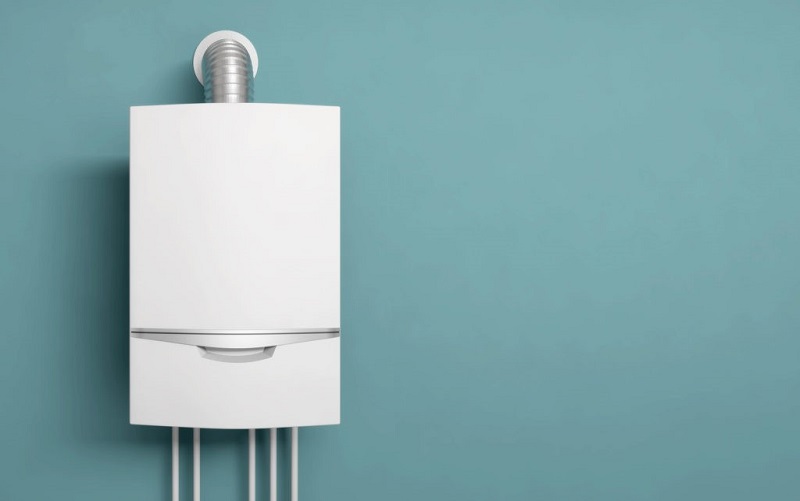Choosing the right heating system can be difficult, particularly if you need to make a sudden decision. Finding a cost-effective heating system is only one step in the process. You must also pick one that is suitable for the energy source in your residence.
What is the heating system?
A heating system is a device that uses thermal energy to maintain a comfortable temperature in a house, workplace, or other structure. Frequently found as part of a heating, ventilation, and air conditioning system.
How to choose an efficient Heating System
Several factors will influence. Which heating system is ideal for your home? One of the most important considerations is whether you need to heat your entire home or just require supplementary or zoned heating.
When it comes to selecting a suitable heating system, your budget, energy-efficiency standards, and preferences all play a part. Here we will discuss three types of heating system for that you may choose the right one according to your requirements.
- Furnaces
- Boilers
- Heat Pumps
Furnaces
Furnaces are devices that use the burning of a fuel source to create heat in a regulated manner. After then, thermal energy is utilized to heat places like rooms, buildings, and other structures. Other types of furnaces can be utilized to treat materials in commercial and industrial settings. Here we will see several types of furnaces to help you determine which ones are right for you.
- Gas Furnace
- Oil Furnace
- Electric furnace
- Modulating Furnace
Gas Furnace:
Natural gas is using to heat your home with a gas furnace. It produces heat more rapidly and at a lesser cost than electric heat units. With AFUE (Annual Fuel Utilization Efficiency) ratings of 98.5 per cent, modern gas furnaces are among the most effective methods to heat your house. If your gas furnace detects a safety hazard, it will automatically shut down.
Oil Furnaces:
Oil furnaces generate heat by igniting aflame with a compressed oil mist. Furnaces are becoming less common as electric and natural gas furnaces take their place. However, these are still in use in older houses and government spaces. Oil furnaces need to be clean by an expert at least once a year.
Electric Furnace:
An electric furnace is one that generates heat and circulates air through the central heating system using electricity. Because no noxious gases are produced, there is no need for flues or other outputs for the heated gases, therefore all heat is directed into the residence.
An electric furnace, on the other hand, does not remove as much moisture from the air. With an electric furnace, maintaining greater humidity in the home may result in a far more pleasant environment.
Modulating Furnace:
A modulating furnace is a home heating system with a burner that gradually modulates the quantity of fuel used. Modulating furnaces can have dozens of parameters and are very adaptable. They are more energy-efficient and provide better temperature control than single-stage or two-stage furnaces.
Boilers
A boiler is a heat exchanger that generates steam and hot water for heating and processing loads using radiant heat and hot flue gases released by burning fuel.
There are multiple boiler types in the market. We’ve listed 2 of them down below:
- Water-tube boiler
- Fire-tube boiler
Water-tube boiler:
A water tube boiler is one in which the water is heated inside tubes and hot gases surround them. Boilers are mostly utilized to generate energy in huge thermal power plants.
Fire-tube boiler:
In this boiler system fire tubes are submerged in water and create hot flue gases through combustion chamber flow within the fire tubes. When heat is transferring to water, steam is formed. These boilers can produce steam at a pressure of up to 10 kg/cm2 and a rate of up to 12,000 kg/hr.
Heat Pump
A heat pump is an essential component of every heating and cooling system. It can chill your home just like an air conditioner, but it can also heat it. Heat pumps, unlike furnaces, do not use fossil fuels, making them more ecologically friendly. They run on electricity and use refrigerants to transmit heat.
There are two types of heat pumps that are extensively using:
- Air Heat Pumps
- Ground Source Heat Pumps
Air Heat Pumps:
Heating your home with an air source heat pump is a low-carbon option. They collect heat from a colder environment and use it to raise the internal temperature. The size of your heat pump is determin by how much heat it generates for your home. The larger the heat pump, the more heat it generates.
Ground Source Heat Pumps:
A ground source heat pump extracts natural heat from the earth. In a central heating system, the pump serves in the same capacity as a boiler. However, instead of burning fuel to create heat, it harnesses ambient heat from the ground.
Conclusion
The heating systems we have highlighted are the most efficient methods to keep your home warm so that you can make an informed decision about suitable heating systems based on your requirements.



